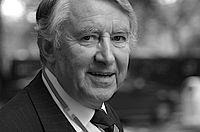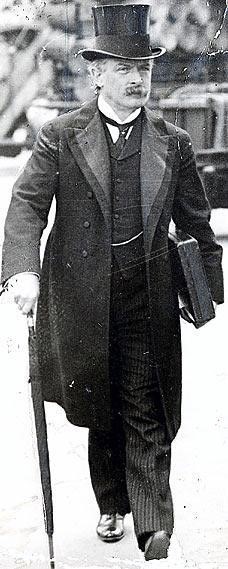
Working with Others: the Lib-Lab Pact revisited – would LG have approved?
Of all politicians, apart perhaps from Winston Churchill, surely Lloyd George was one who most understood that you could only achieve things in politics from a position of power. Lloyd George shared power with the Conservatives and Labour during his First World War coalition. He considered the idea of ‘fusion’ between Coalition Liberals and Conservatives into a new Centre Party, with the hope of attracting Independent Liberals to join. He continued his coalition with the Conservatives into post-war government from 1918-1922. As a younger politician in north Wales, he sought to build a coalition of radical Liberals, labour and Welsh nationalists in a re-launched Cymru Fydd. LG was so much a collaborationist in politics that some critical commentators used this to predict he would be the British Petain in the event of a successful invasion of Britain by Hitler.
So surely he would have approved of David Steel’s arrangement with Labour prime minister Jim Callaghan between 1977-78 which became known as the Lib-Lab Pact. By Steel’s time, the prospect of office for the Liberal Party alone had long since disappeared so any chance of real political power or even of significant influence in politics could only lie in collaboration with another party. The circumstances which deprived Callaghan’s government of its overall majority in the House of Commons in March 1977 gave David Steel a chance to put his strategy of working with others into practice.
Thirty years on, some of the major players in the Pact will meet to reconsider its importance and impact. The Liberal Democrat History Group is hosting a meeting at the National Liberal Club on Monday 14 July from 7.00pm. The speakers will be David Steel (Leader of the Liberal Party, 1976-88), Tom McNally (Head of Jim Callaghan’s political office, 1976-79) and Michael Steed (academic psephologist and President of the Liberal Party, 1978-79). The meeting will be chaired by Geoff Tordoff (Chairman of the Liberal Party, 1976-79) – and one of the Lloyd George Society’s Vice-Presidents.
All are welcome, no need to be a party member or a History Group member.
